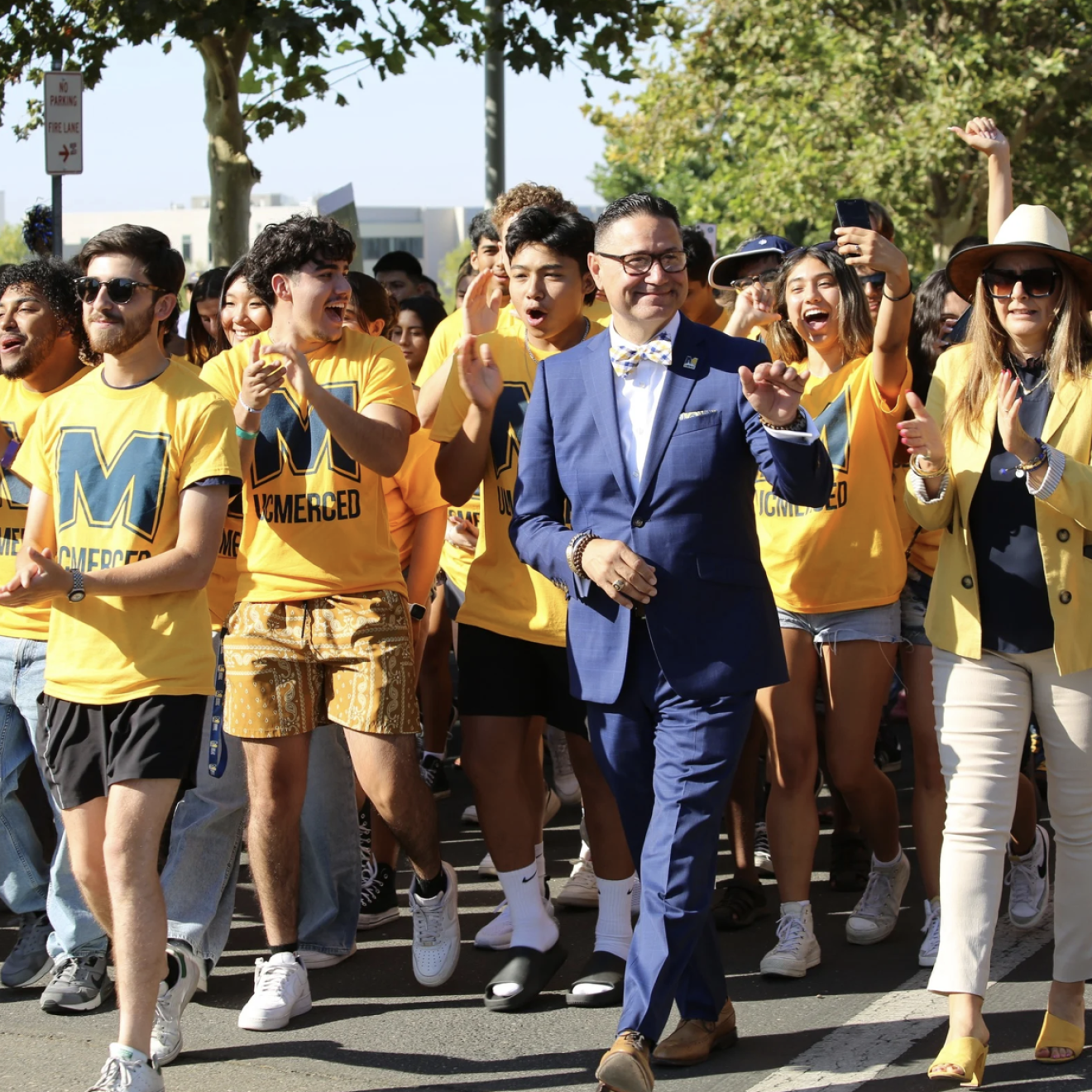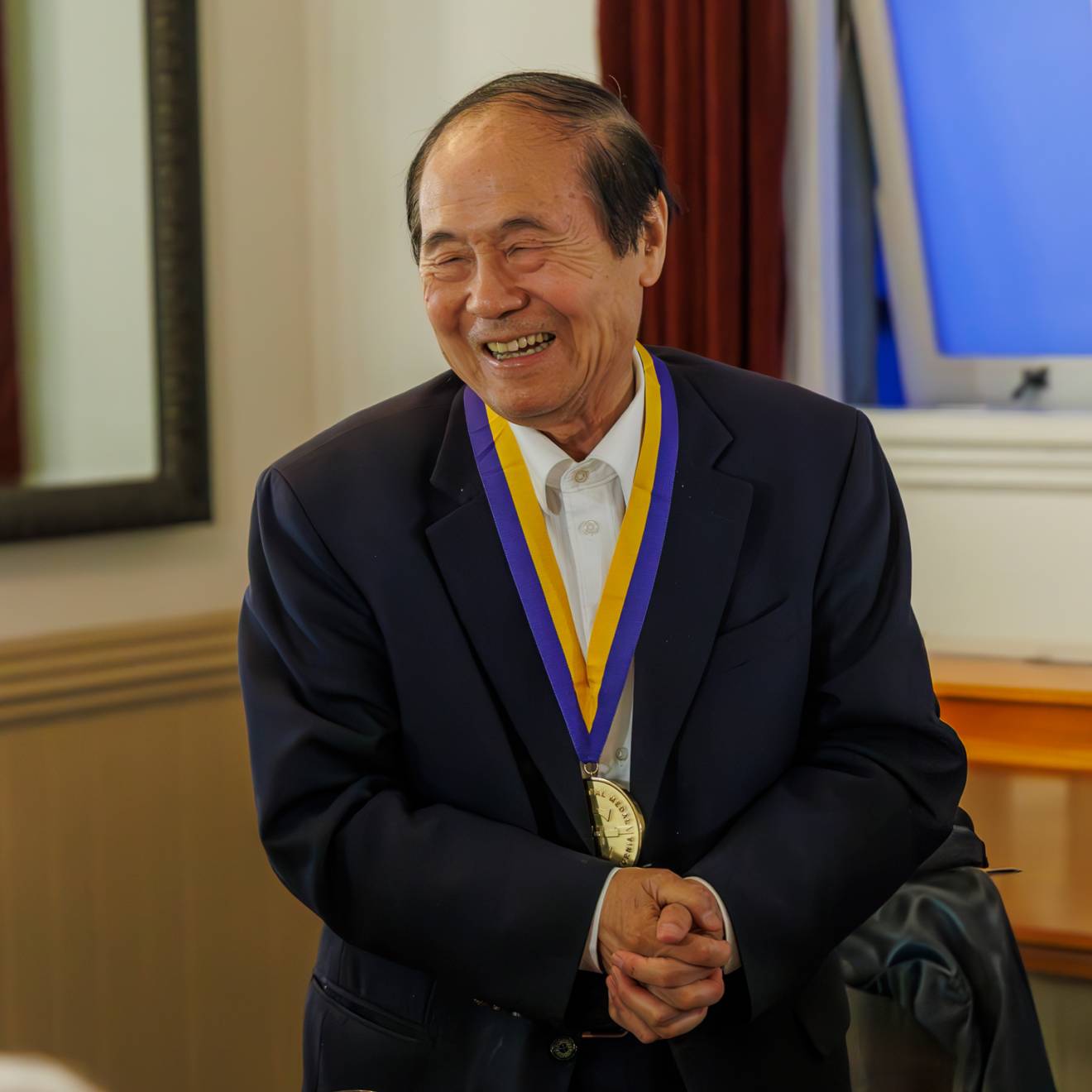Carolyn McMillan, UC Newsroom
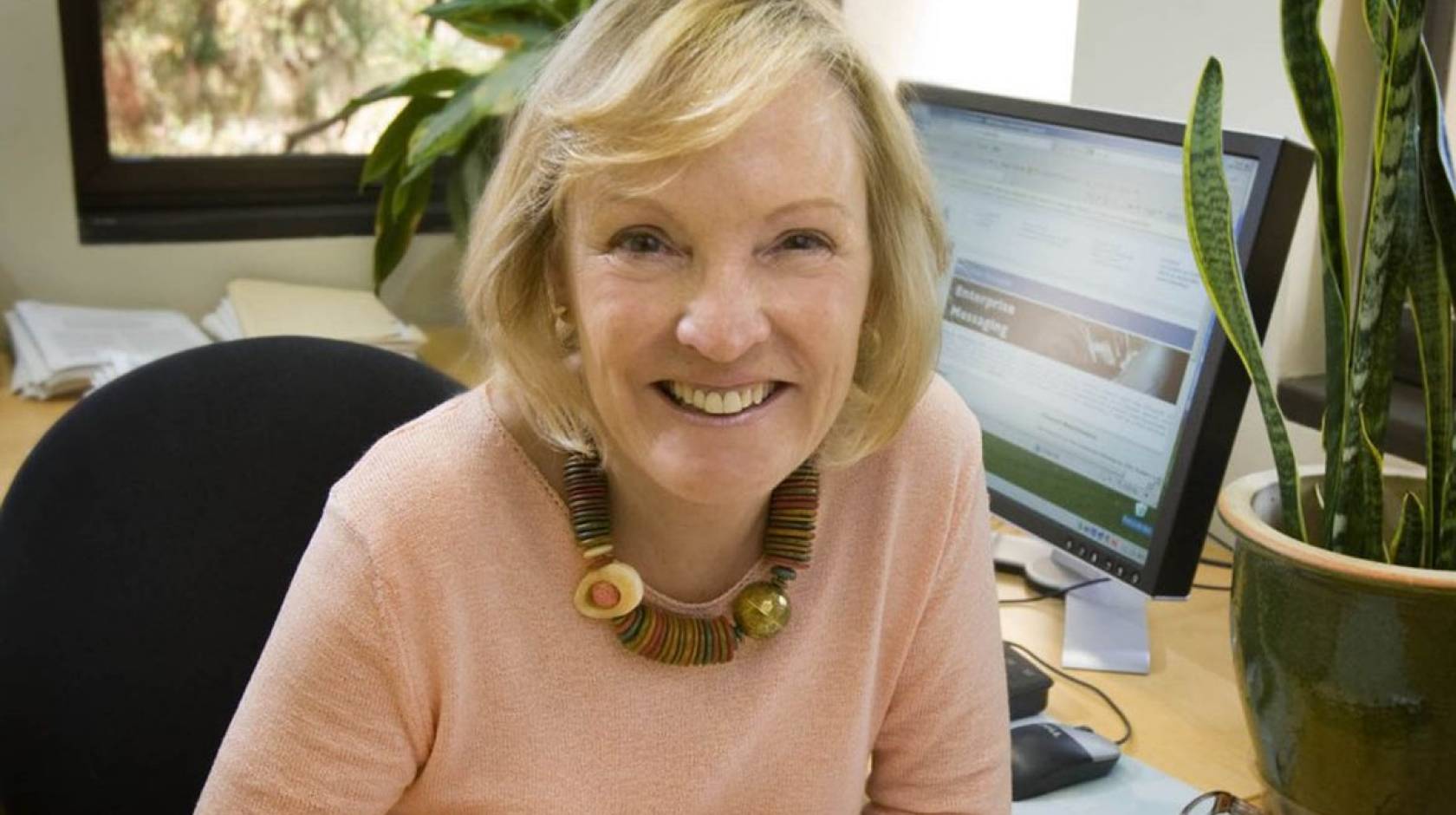
At a White House ceremony on Tuesday, Oct. 24, President Biden awarded National Medals to three UC faculty for their outstanding achievements in science and technological innovation.
UC Riverside Distinguished Professor of Physics Barry Barish and UCLA Distinguished Professor Emerita of Psychology Shelley Taylor were among nine awardees of the National Medal of Science, while Ashok Gadgil — a retired Berkeley Lab faculty senior scientist and distinguished professor emeritus of civil and environmental engineering at UC Berkeley — was among 10 who received the National Medal of Technology and Innovation.
“The National Medal of Science is given for outstanding contributions to knowledge in the sciences, and the National Medal of Technology and Innovation for outstanding contributions to the promotion of technology for the improvement of the economic, environmental and social well-being of the United States,” President Biden said. “With this year’s recipients, ‘outstanding’ may be an understatement. They’re extraordinary.”
Barry Barish, UC Riverside physicist
Barish, winner of the 2017 Nobel Prize in physics for the discovery of gravitational waves, was recognized for exemplary service to science, including groundbreaking research on subatomic particles. “His leadership of the Laser Interferometer Gravitational-Wave Observatory led to the first detection of gravitational waves from merging black holes, confirming a key part of Einstein's Theory of Relativity. He has broadened our understanding of the universe and our Nation's sense of wonder and discovery,” the White House citation said.
Barish earned his bachelor’s degree in physics in 1957 and his doctorate in experimental particle physics in 1962, both from UC Berkeley.
Learn more about Barish’s groundbreaking work in physics.
Shelley Taylor, UCLA psychologist
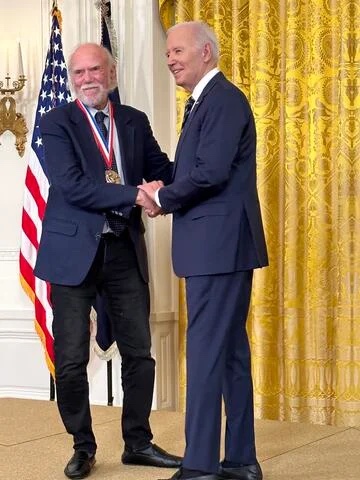
Barry Barish receives the National Medal of Science from President Joe Biden.
Taylor, a faculty member at UCLA since 1979, is a pioneer of social cognition who revealed the role of cognitive bias in social relations. Social cognition is the process of people making sense of the social world — how they think about themselves, other people, social groups, human history and the future. This social knowledge begins to develop in infancy and guides human beliefs about others and social behavior.
Though a common term today, cognitive bias was a new idea when Taylor and Susan Fiske, a psychology professor at Princeton, described it in 1984.
The White House citation honored Taylor’s “groundbreaking research into mental health and the power of human connection” and her role in “helping to establish the fields of social cognition, health psychology and social neuroscience and increasing our nation’s well being.”
“Her work showed that optimism, self-esteem and strong relationships improve the health of people with cancer, diabetes and other diseases,” the White House said.
Learn more about Shelley Taylor’s achievements.
Ashok Gadgil, Berkeley Lab retired faculty senior scientist and professor emeritus of civil and environmental engineering at UC Berkeley
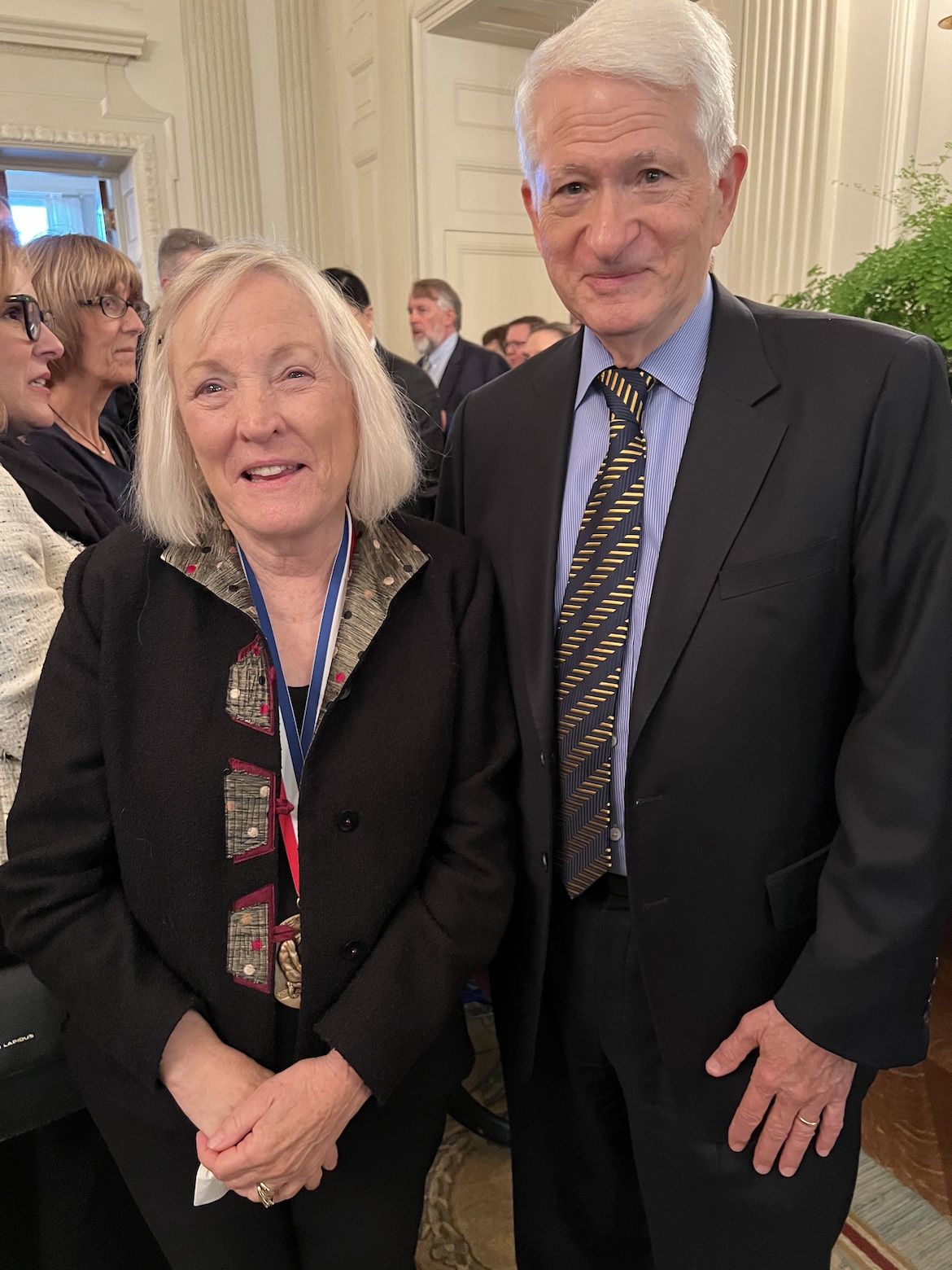
Shelley Taylor with UCLA Chancellor Gene Block at the White House.
The White House recognized Gadgil for “providing life-sustaining resources to communities around the world. His innovative, inexpensive technologies help meet profound needs, from drinking water to fuel-efficient cookstoves. His work is inspired by a belief in the dignity of all people and in our power to solve the great challenges of our time.”
Gadgil is widely considered to be a “humanitarian inventor.” For decades he has worked to create low-cost, inclusive and robust solutions to some of the developing world’s most challenging problems.
He is best known for inventing safe drinking water technologies — including UV Waterworks, a low-cost, portable and energy-efficient water purifier, and ECAR, an advanced arsenic removal technology — as well as fuel-efficient cookstoves. His many engineering solutions have proved transformative for low-resource communities and have helped more than 100 million people across four continents. One of his more recent projects included setting up an arsenic treatment system for a small, rural community in California.
Learn more about Gadgil’s many humanitarian inventions.
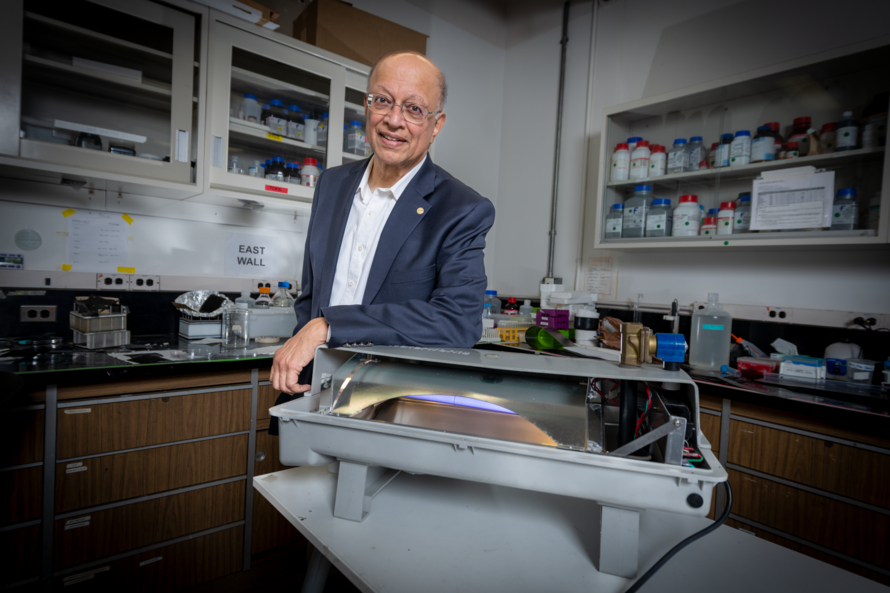
Ashok Gadgil, Physicist Faculty Senior Scientist/Engineer, Energy Technologies Area (ETA), photographed with the UV Waterworks device, a low-cost and efficient water purifier that utilizes ultra-violet light to render viruses and bacteria harmless, at his lab on the UC Berkeley campus.
